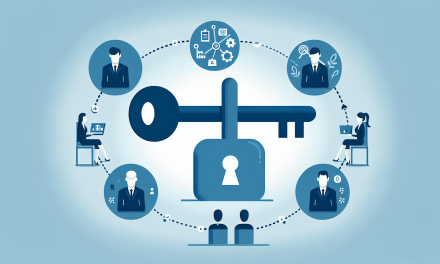Table of Content
- Introduction
- Understanding HR Management
- The Essential Role of HR in Business Development
- Strategies for Success
- The Power of Strategic HR Transformation
- Roles and Responsibilities of HR Professionals
- Change Management in HR
- FAQs
- Conclusion
Introduction
In today’s fast-paced business environment, the successful integration of human resources (HR) with strategic business objectives plays a crucial role in driving organizational growth. As companies navigate the complexities of globalization, technological advancements, and changing workforce dynamics, the necessity for a robust approach to HR management becomes increasingly evident. In this landscape, understanding the synergy between HR and business development is paramount, as it serves as the foundation for fostering a talented, engaged, and productive workforce.
Understanding HR Management
HR management encompasses a variety of functions, all aimed at optimizing and managing the human asset of an organization. Effective HR practices not only support employees but also enhance overall business performance. By focusing on areas such as recruitment, training, performance management, and employee relations, HR professionals can promote a culture that aligns with the company’s goals.
The Importance of HR in Organizational Success
To put it simply, human resources are the heartbeat of any organization. People drive innovation, creativity, and efficiency, making it essential for HR to adopt strategies that not only attract the best talent but also retain and develop them. Companies that prioritize strong HR strategies tend to experience better employee satisfaction, leading to improved performance and lower turnover rates.
The Essential Role of HR in Business Development
Human resources play a multifaceted role in business development, acting as a bridge between employee engagement and organizational objectives. Notably, HR professionals contribute to strategic planning by identifying the skills and competencies required to achieve business goals. In doing so, they ensure that the workforce is equipped to tackle future challenges.
HR & Business Management: The Role of HR in Business Development
For a deeper dive into this subject, HR & Business Management: The Role of HR in Business Development explores how HR initiatives can directly impact the success of business strategies. Importantly, aligning HR practices with business objectives fosters a cooperative environment where both employees and the organization can thrive.
Fostering a Collaborative Culture
By encouraging collaboration and open communication, HR creates an atmosphere where employees feel valued and engaged. Such a culture not only enhances morale but also stimulates innovative ideas, driving the business forward. Additionally, strong HR practices can mitigate conflicts and ensure that employees are aligned with the company’s vision.
Strategies for Success
Implementing effective strategies in HR management can significantly enhance business development. These strategies focus on workforce planning, talent acquisition, and continuous professional development.
Talent Acquisition and Workforce Planning
Attracting top talent requires a proactive approach. HR professionals should employ comprehensive recruitment methods to ensure a diverse and skilled candidate pool. Moreover, workforce planning plays an essential role in anticipating future hiring needs and aligning them with business goals. This proactive planning not only fills current vacancies but also prepares for future organizational growth.
Continuous Professional Development
Investment in employee growth is vital. Providing opportunities for continuous learning and development ensures that employees stay engaged and can adapt to changing business needs. Companies that prioritize development programs often see lower turnover rates and higher job satisfaction among employees.
The Power of Strategic HR Transformation
As the business landscape continues to evolve, HR must undergo transformation to remain relevant. Strategic HR transformation involves aligning human resource strategies with overall business objectives, thus ensuring that HR not only supports the business but also drives its success.
Unlocking the Power of Strategic HR Transformation for Organizational Success
For insights on how HR transformation can lead to greater organizational success, consider reading Unlocking the Power of Strategic HR Transformation for Organizational Success. This article highlights key practices in reshaping HR to better contribute to business strategies.
Roles and Responsibilities of HR Professionals
HR professionals wear many hats, serving as mediators, strategists, and advisors. Their primary responsibility lies in ensuring that the organization has the right talent in place to achieve its objectives.
Essential Roles Explored
The roles of HR professionals can include recruitment and selection, training coordination, employee relations management, performance monitoring, and compliance with labor laws. Understanding these essential functions enables organizations to utilize their human capital effectively and ethically.
Unlocking the Essential Roles and Responsibilities of an HR Administrator
To explore the various functions of HR administrators, check out Unlocking the Essential Roles and Responsibilities of an HR Administrator. This resource provides an in-depth look at how HR administrators facilitate business success from behind the scenes.
Change Management in HR
Managing change is particularly vital in today’s fast-moving business climate. HR professionals must be skilled in guiding their organizations through transitions, whether they involve new technologies, shifts in company culture, or changing workforce dynamics.
Strategic Change Management Practices
Implementing strategic change management practices enables organizations to adapt seamlessly. By anticipating changes, communicating effectively with employees, and providing the necessary training, HR ensures that transitions do not disrupt productivity.
Empowering HR Professionals through Strategic Change Management Practices
For more on enhancing HR capabilities in managing change, refer to Empowering HR Professionals through Strategic Change Management Practices. This article outlines practical strategies for HR professionals to implement change effectively.
FAQs
What is the role of HR in business development?
HR plays a crucial role in business development by aligning workforce capabilities with business objectives, managing talent acquisition and retention, and fostering an engaged workforce that drives innovation and productivity.
How can HR strategies contribute to organizational success?
Effective HR strategies enhance organizational success by ensuring that the right talent is in place, promoting a positive workplace culture, and supporting professional development, which ultimately leads to higher employee satisfaction and performance.
Why is change management important in HR?
Change management is vital in HR because it helps organizations navigate transitions smoothly, minimizing disruptions and maintaining productivity. It ensures that employees are prepared and supported during periods of change.
Conclusion
In summary, the relationship between human resources and business development is complex yet rewarding. By leveraging HR strategies effectively, organizations not only optimize their workforce but also drive significant business growth. With a focus on strategic HR transformations, effective talent acquisition, and robust change management practices, businesses can ensure they stay ahead in a competitive landscape. The investment in HR is an investment in the organization’s future, paving the way for sustained success.





